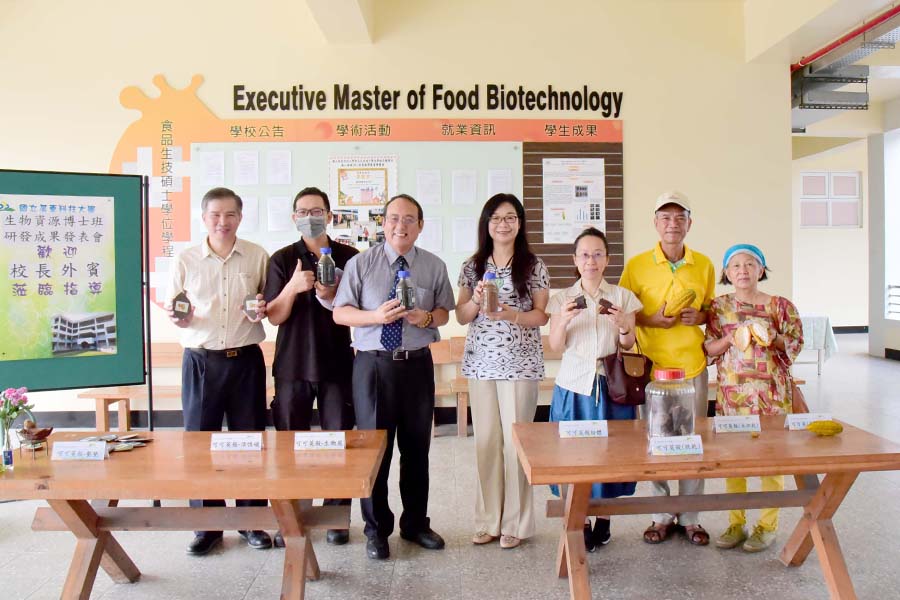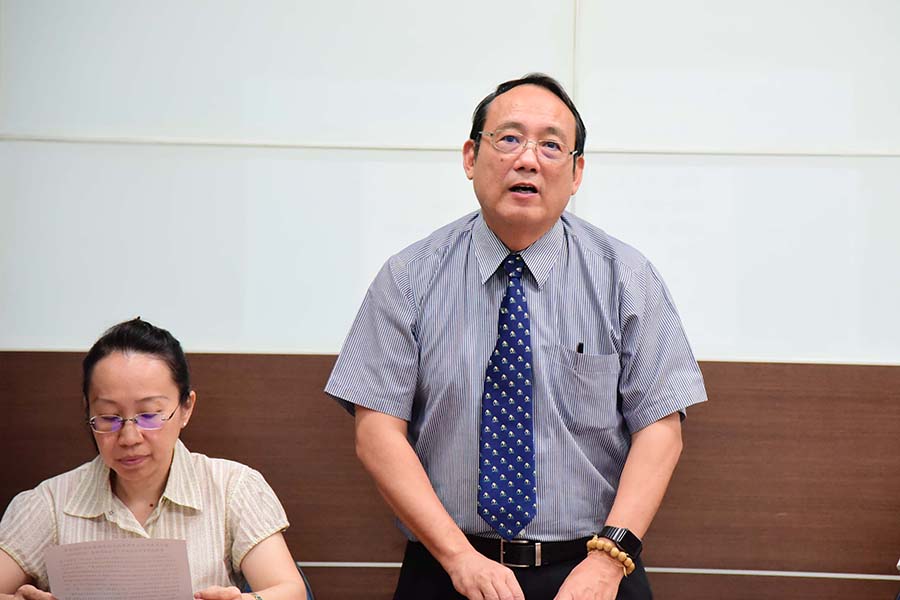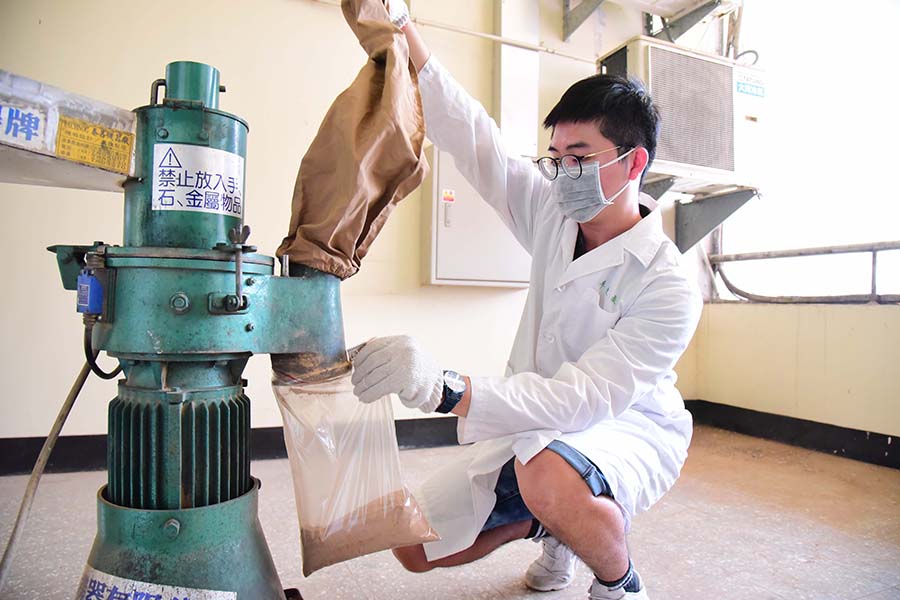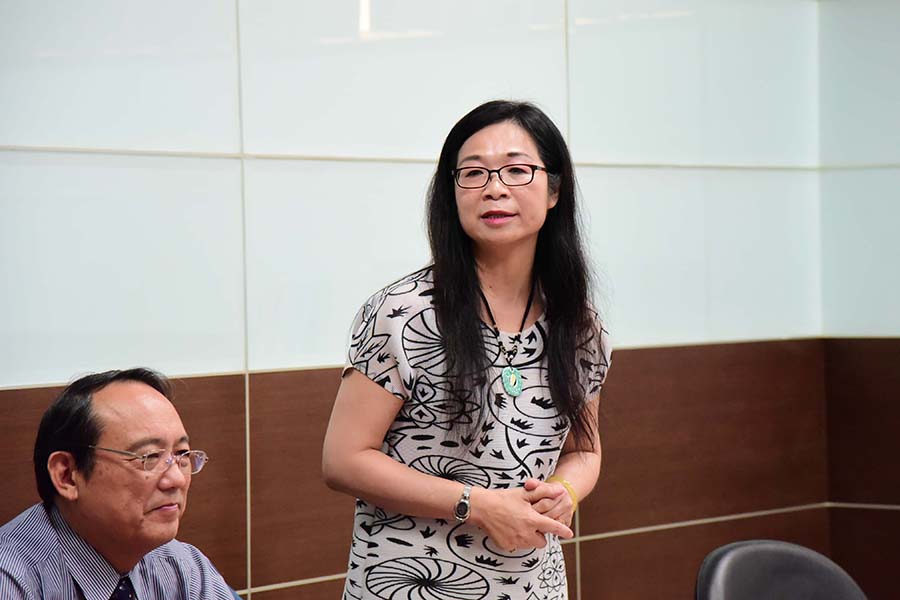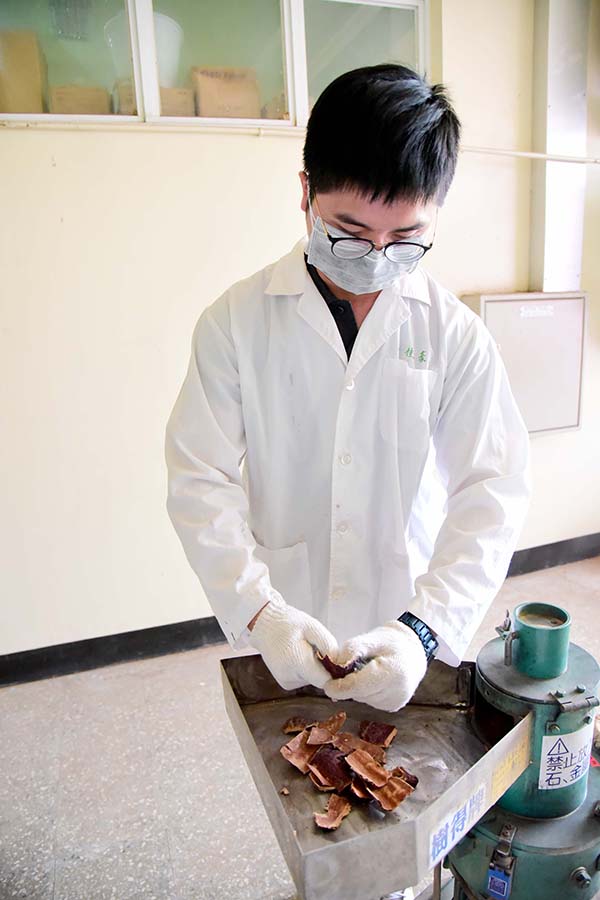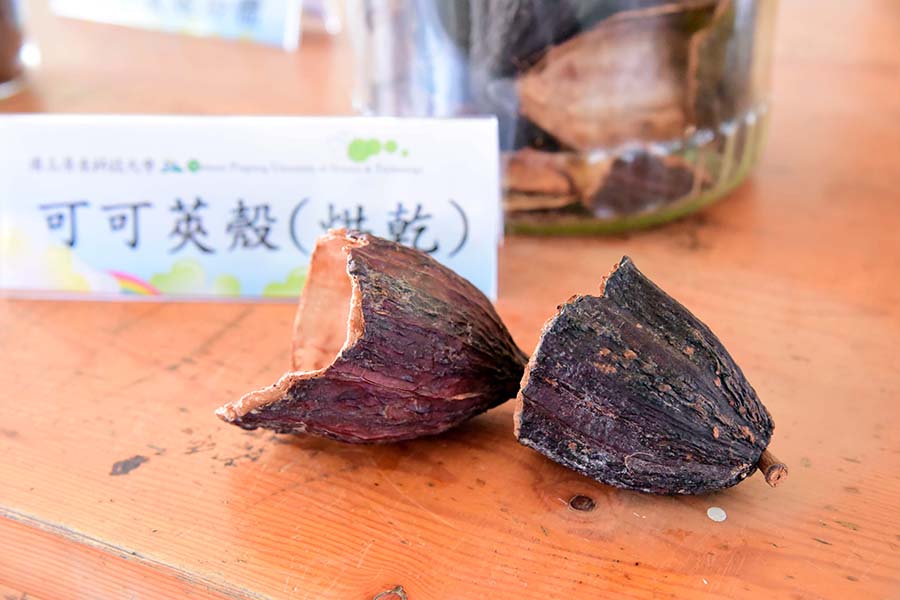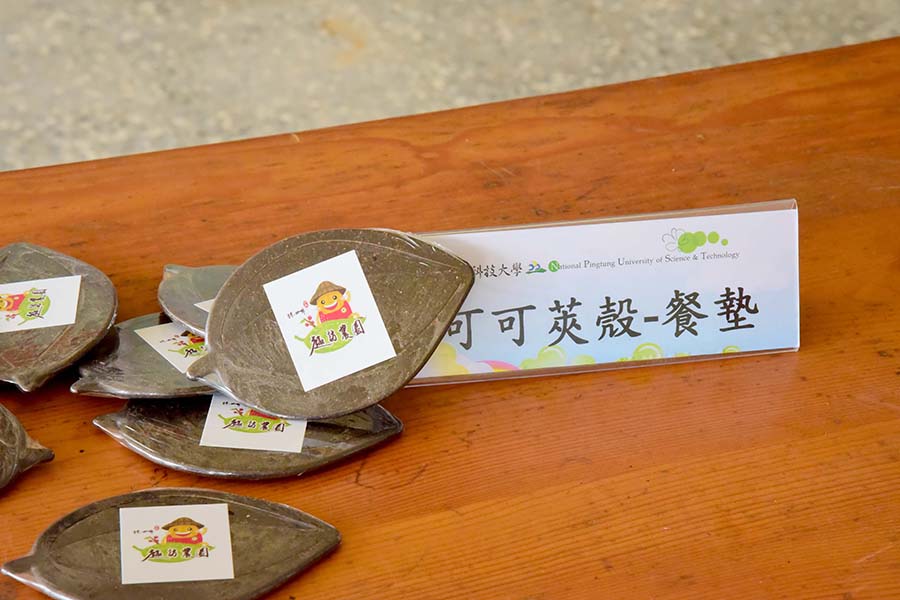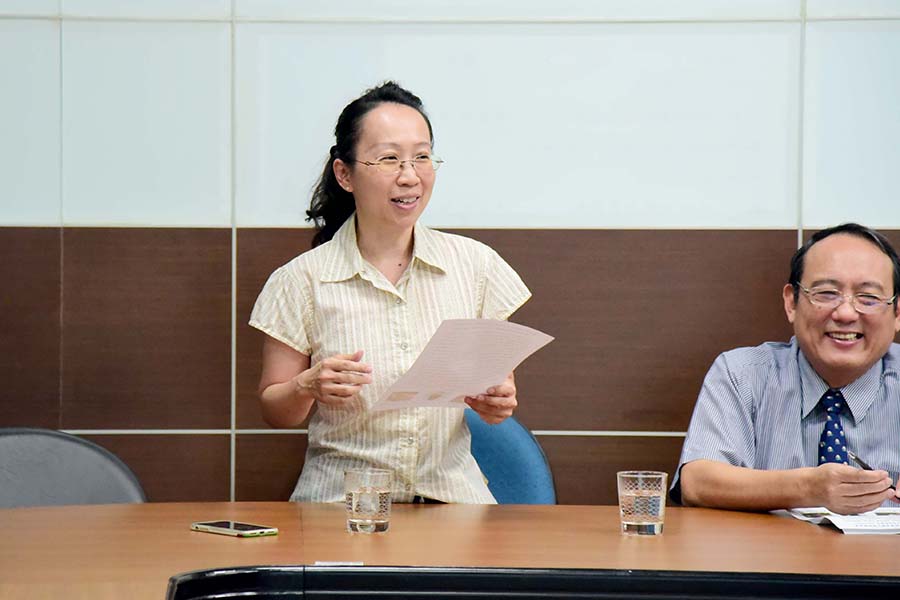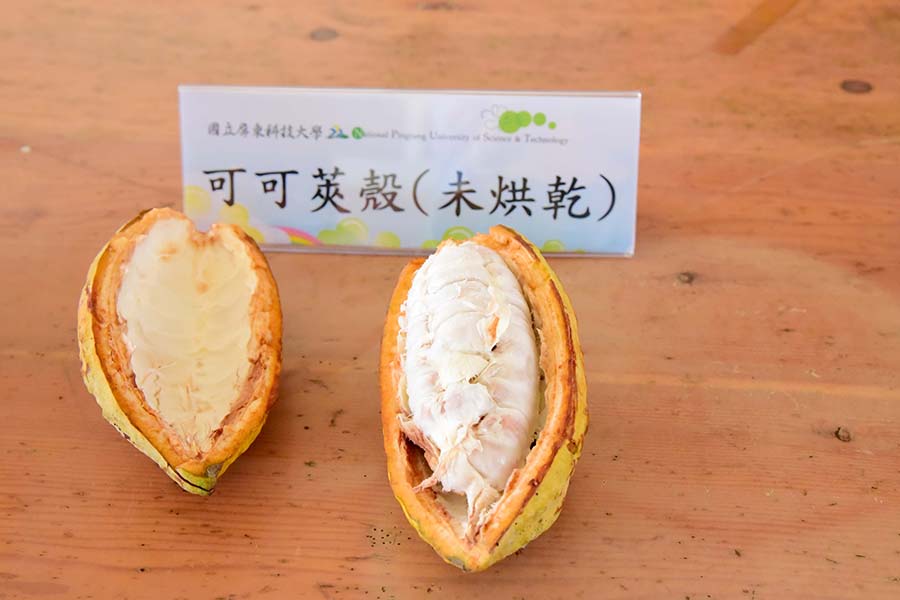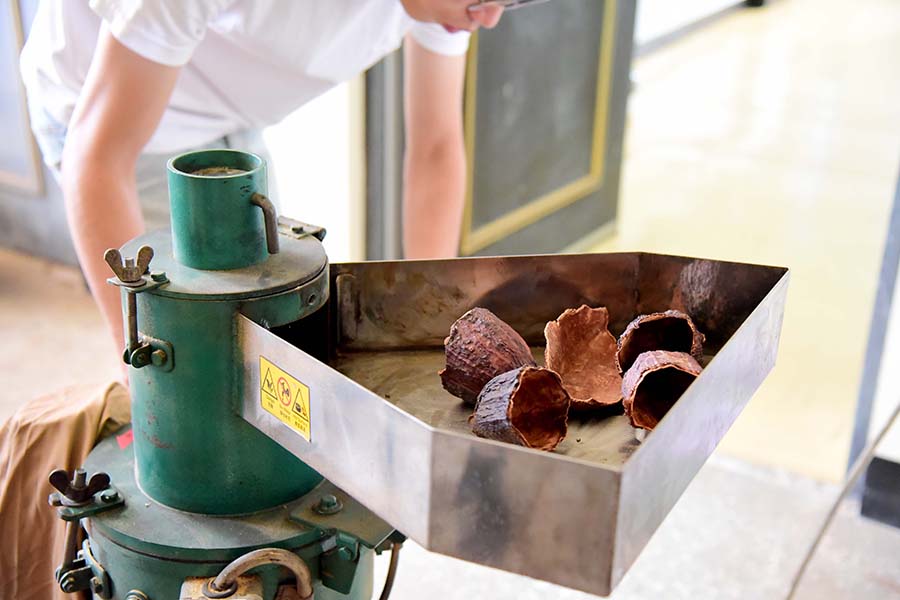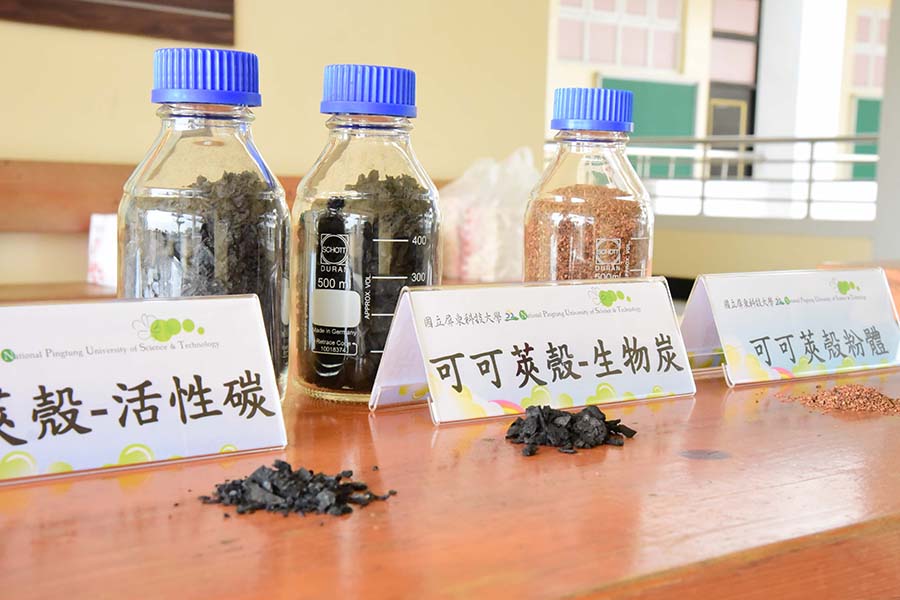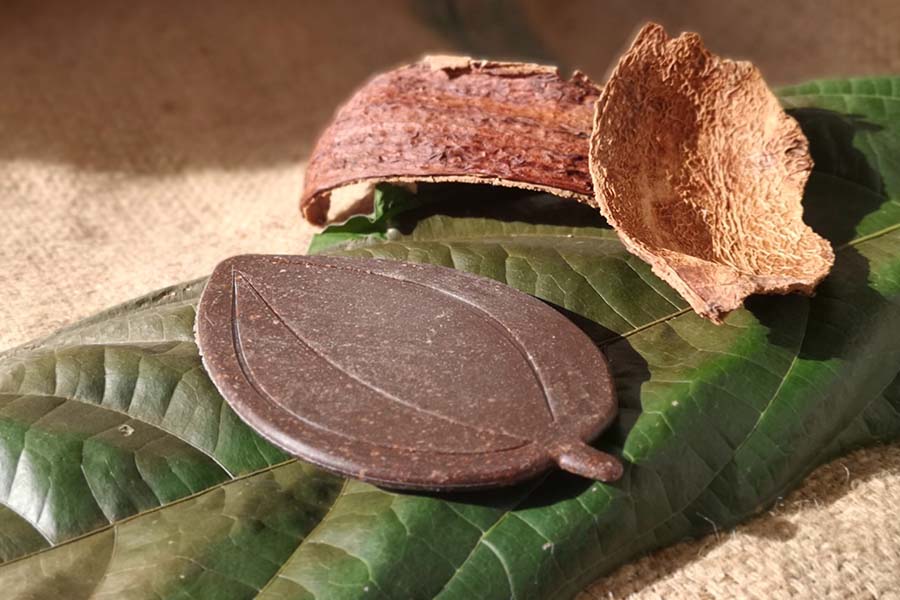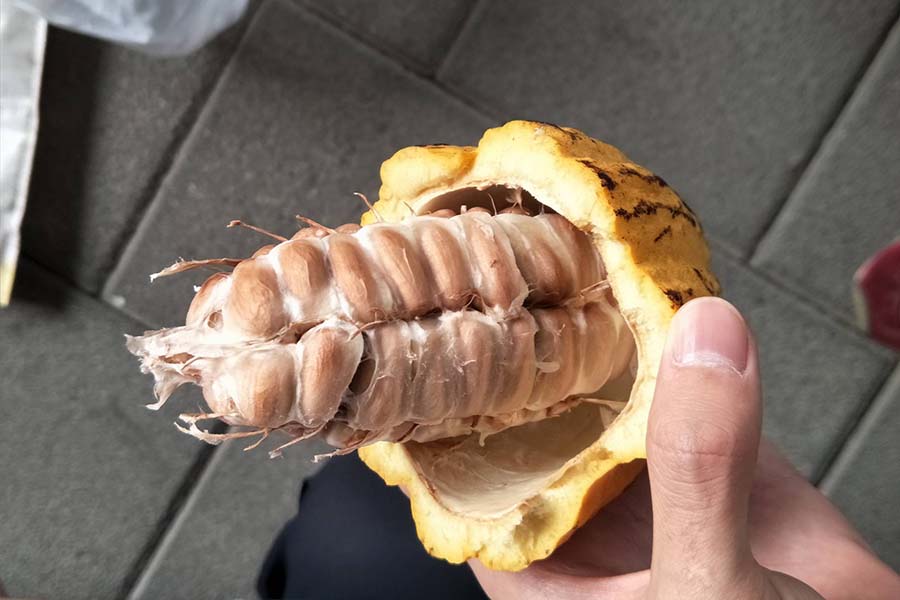In recent years, with strong support from the county government, cocoa and chocolate leisure farming has turned into a “major harvest” for Pingtung County.
At the NPUST Graduate Institute for Bioresources (College of Agriculture), Professor Wen-Tien Tsai has been working with local leisure farm operators and processing companies for many years to help with the development of production and marketing activities. Giving consideration both to economic value and environmental sustainability, Professor Tsai was interested in developing ways to turn cocoa pods, which normally went to waste, into something of value. Typically, the waste pods would be burned, discarded or occasionally used to make organic fertilizers – activities which create bad odors, air pollution, carbon dioxide and/or methane gasses. To find a better way, Tsai teamed up with a locally operated company, Wenham Environmental Protection Technology Co., Ltd., and obtained a Ministry of Economic Affairs “small business innovative research” (SBIR) project grant to carry out the related research.
With concepts of “circular economy” and “clean production” in mind, the team developed a method to turn the waste pods into a highly porous activated carbon material. The material they created has a “high specific surface area” and high adsorption capacity, which has potential for such applications as water filters, food-safe detoxifiers, ecofriendly absorbents, and energy storage. Meanwhile, the high levels of potassium in the pods can be used for liquid or solid fertilizers— thus maximizing the use of the materials and achieving “circular economy” objectives.
In a second SBIR project, Tsai began working with Qu Fang Farm, a local organic cocoa farm, to develop an environmentally friendly “culturally creative placemat”. The placemats are made out of dried natural organic wood fibers from the cocoa pods and help further resolve the question of what to do with the waste by-products of the cocoa production processes. After the drying processes, the product, which consists of 92% organic material and about 4% potassium, has a unique and pleasant fragrance.
Commenting on the research, NPUST President Chang Hsien Tai expressed that “Professor Wen-Tien Tsai’s R&D achievements allow for the cocoa pods to be made full use of, thus maximizing the value of cocoa production and creating a comprehensive win for sustainable development”. Pingtung County Department of Hakka Affairs director, Liping Chen said that “through University Social Responsibility and thanks to the research capacity of NPUST, we expect to see cocoa industries develop in more sophisticated ways.” Also commenting on the developments, the Dean of the College of Agriculture, Wen-ling Shih, stated that “through this, students can learn how to make full use of waste products from fruit production— and this will benefit the environment.” Based on University Social Responsibility, NPUST is working with related businesses in the neighboring Neipu Industrial Area, helping them to make technological advances and adding value to production.

